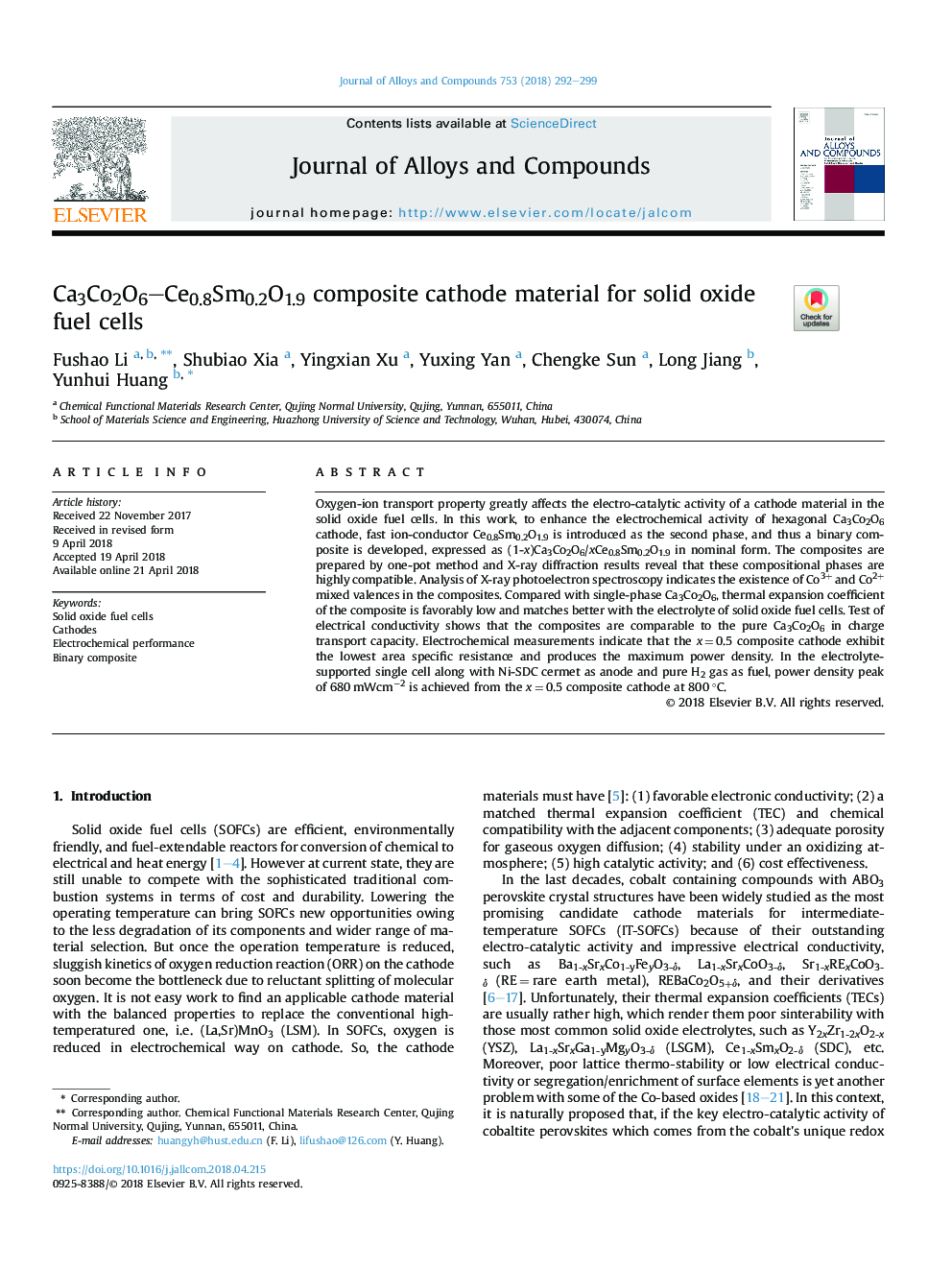| Article ID | Journal | Published Year | Pages | File Type |
|---|---|---|---|---|
| 7991483 | Journal of Alloys and Compounds | 2018 | 8 Pages |
Abstract
Oxygen-ion transport property greatly affects the electro-catalytic activity of a cathode material in the solid oxide fuel cells. In this work, to enhance the electrochemical activity of hexagonal Ca3Co2O6 cathode, fast ion-conductor Ce0.8Sm0.2O1.9 is introduced as the second phase, and thus a binary composite is developed, expressed as (1-x)Ca3Co2O6/xCe0.8Sm0.2O1.9 in nominal form. The composites are prepared by one-pot method and X-ray diffraction results reveal that these compositional phases are highly compatible. Analysis of X-ray photoelectron spectroscopy indicates the existence of Co3+ and Co2+ mixed valences in the composites. Compared with single-phase Ca3Co2O6, thermal expansion coefficient of the composite is favorably low and matches better with the electrolyte of solid oxide fuel cells. Test of electrical conductivity shows that the composites are comparable to the pure Ca3Co2O6 in charge transport capacity. Electrochemical measurements indicate that the xâ¯=â¯0.5 composite cathode exhibit the lowest area specific resistance and produces the maximum power density. In the electrolyte-supported single cell along with Ni-SDC cermet as anode and pure H2 gas as fuel, power density peak of 680â¯mWcmâ2 is achieved from the xâ¯=â¯0.5 composite cathode at 800â¯Â°C.
Related Topics
Physical Sciences and Engineering
Materials Science
Metals and Alloys
Authors
Fushao Li, Shubiao Xia, Yingxian Xu, Yuxing Yan, Chengke Sun, Long Jiang, Yunhui Huang,
